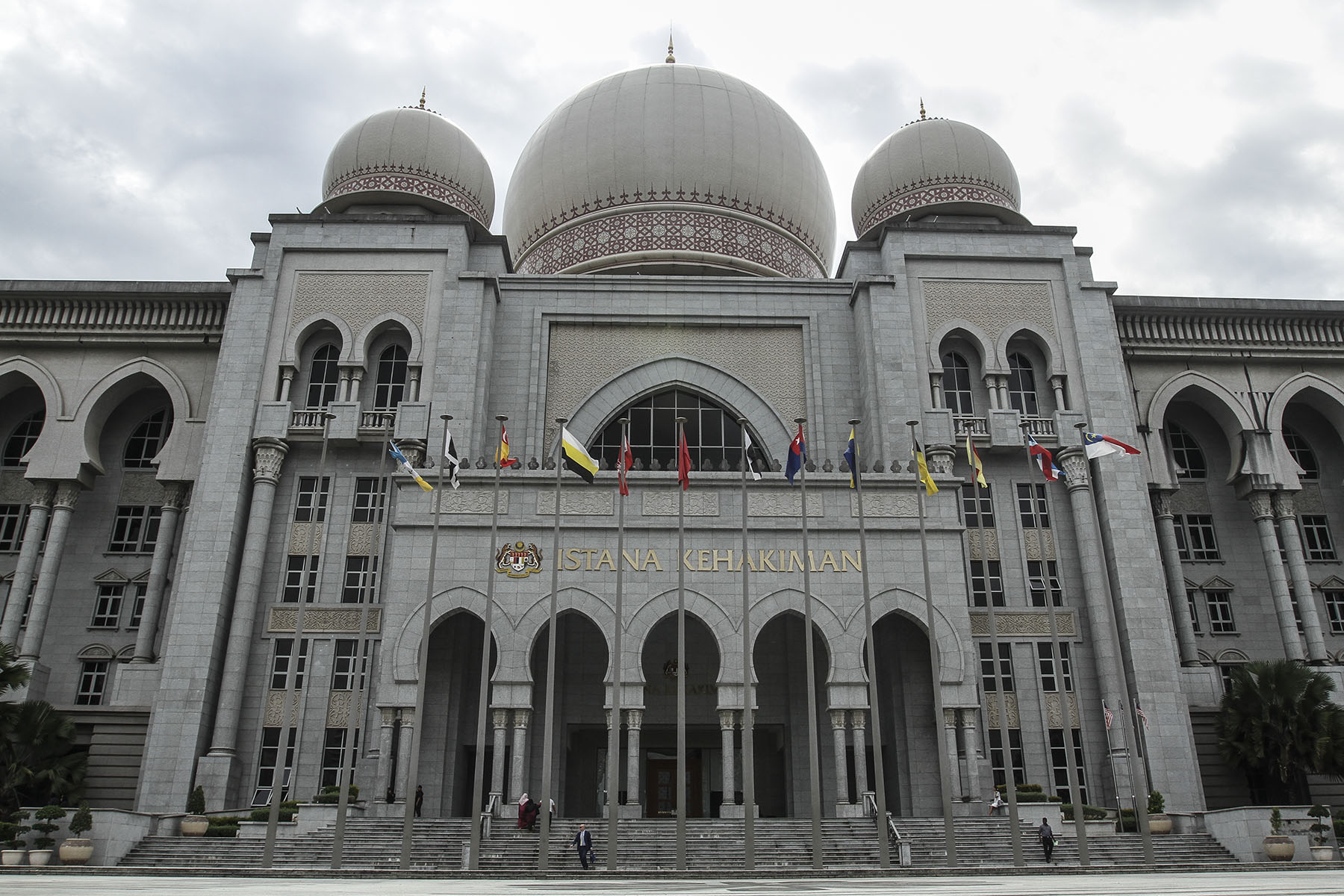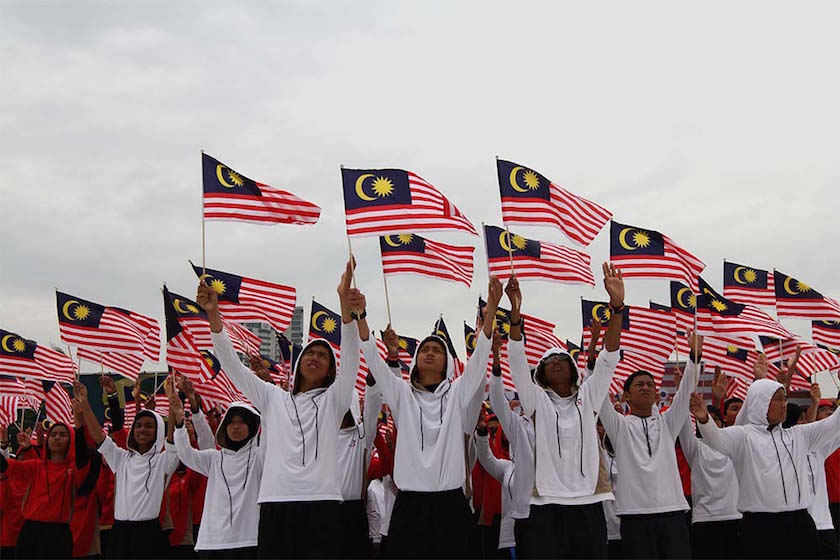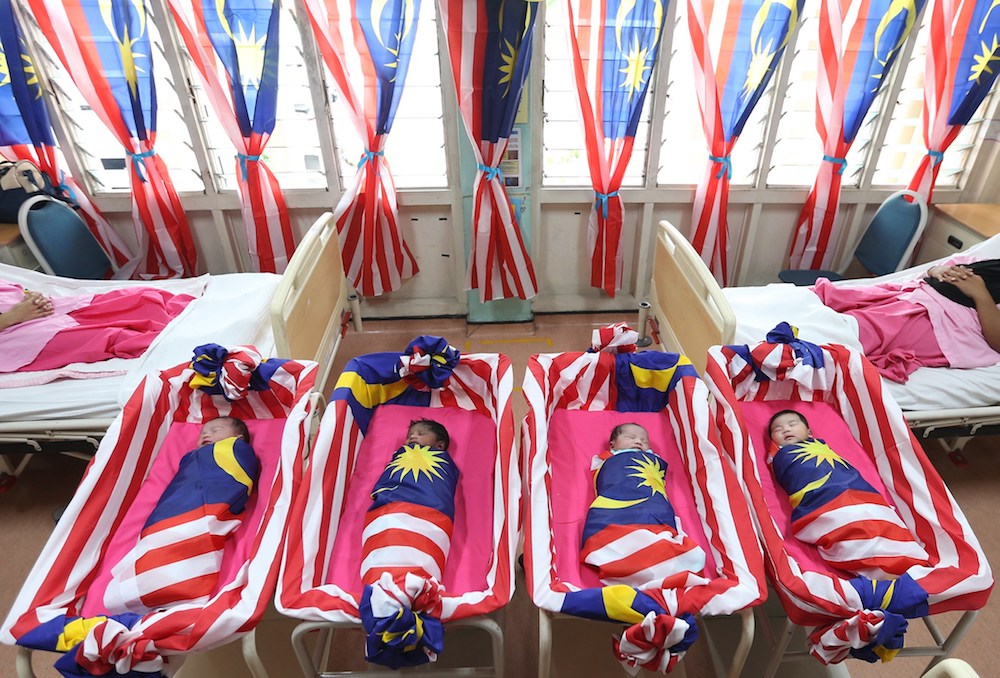KUALA LUMPUR, Nov 25 — A stateless Malaysia-born boy who has been legally adopted by a Malaysian couple in Penang will now get another attempt in court to seek to be recognised as a Malaysian citizen.
The teenage boy — identified only as C to protect his identity — yesterday won leave at the Federal Court to appeal against a previous court decision against his citizenship bid.
This means the country’s highest court will hear questions of law and the constitution that arose in his bid to be known as a Malaysian.
Now 16, C has spent the past three years pursuing his bid in the courts — through his adoptive Malaysian parents — to finally be known as a Malaysian.
Born in January 2004 in a hospital in Kuala Lumpur to unknown biological parents who cannot be located, the child C has been under the care of the Penang couple since his birth.
Based on court papers, the Malaysian couple had in July 2017 legally adopted C through a court order, and had subsequently in September 2017 provided the court order and returned the child’s original birth certificate to the National Registration Department (NRD) to allow for C to be registered in the Adopted Children Register and for a new birth certificate to be issued.
When the new birth certificate was issued in September 2017 by the NRD, the birth certificate named C’s adoptive Malaysian parents as his “father” and “mother”, but stated C’s nationality to be bukan warganegara or non-citizen.
His new birth certificate was also red in colour due to the non-citizen status, unlike birth certificates for Malaysian citizens that are green in colour.
This then resulted in C’s parents spending the next three years asking for the courts to provide official recognition of the boy as a Malaysian citizen.
The three-year legal journey so far
On December 18, 2017, C’s adoptive Malaysian parents filed for themselves and on his behalf for judicial review at the High Court over the NRD’s refusal to recognise the child as a citizen, naming the Registrar-General of Births and Deaths, Malaysia — who signed the red-coloured birth certificate — as the sole respondent of the lawsuit. At that time, C was still 13 years old.
The High Court on March 20, 2018, granted leave for the judicial review application to be heard, with High Court judge Nordin Hassan proceeding to hear the judicial review on May 16, 2019, before deciding on July 3, 2019, to dismiss C’s citizenship bid.
After filing an appeal on July 31, 2019, the Court of Appeal on July 1, 2020, heard C’s appeal against the High Court’s dismissal of his citizenship bid.
On the same day of the hearing, the Court of Appeal’s three-man panel composed of Datuk Kamardin Hashim, Datuk Has Zanah Mehat and Datuk Azizah Nawawi dismissed C’s appeal.
The Federal Court yesterday heard C’s application for leave to appeal, the child’s lawyers told Malay Mail.
Led by lawyer Raymond Mah and assisted by lawyers Jasmine Wong and Eric Toh, the trio represented C in arguing that the Federal Court should hear the child’s appeal.
While the Registrar-General of Births and Deaths — which was represented by senior federal counsels Mazlifah Ayob and Shamsul Bolhassan — had opposed leave being granted for the appeal, C’s lawyers said that the Federal Court had yesterday decided to grant C leave for appeal and granting for all five questions of law proposed by C to be heard.
The Federal Court’s decision yesterday was delivered by a three-man panel composed of Federal Court judges Datuk Abdul Rahman Sebli, Datuk Zaleha Yusof, and Datuk Seri Hasnah Mohammed Hashim.

When the Federal Court hears C’s appeal on a later date, the legal issues that will be examined are expected to include arguments from C’s lawyers that he is a citizen by operation of law, or in other words that he is a citizen automatically because of provisions in the Federal Constitution.
Here are the five questions of law to be heard:
- Whether a child who (i) was born in Malaysia and (ii) did not acquire citizenship of any other country within one year from his date of birth, is a citizen of Malaysia by operation of law pursuant to Article 14(1)(b) and Part II Section 1(e) and Section 2(3) of the Second Schedule of the Federal Constitution.
- Whether Part II Section 1(e) of the Second Schedule of the Federal Constitution requires a child to prove the identity of his/her biological parents and/or that they are not foreign citizens.
- Whether the word “parents” in Part II Section 1(a) of the Second Schedule of the Federal Constitution should be given a restrictive interpretation to mean only the child’s biological parents.
- Whether a certificate of birth issued under Section 25A of the Adoption Act 1952 shall pursuant to subsection (5) “for all purposes be known as the Certificate of Birth of the child” and pursuant to subsection (6) “shall be received without further or other proof as evidence” of the child’s parents for the purpose of Article 14(1)(b) and Part II Section 1(a) of the Second Schedule of the Federal Constitution.
- Whether a birth certificate which has been “surrendered” to the Registrar General of Births and Deaths pursuant to Section 25A(1)(b) of the Adoption Act 1952 and “replaced” by a new birth certificate issued pursuant to Section 25A(5) of the Adoption Act 1952, can still be referred to by the Registrar General of Births and Deaths or the courts for the purposes of determining a child’s “parents”.

Why is citizenship recognition so important for C?
In court papers to support C’s citizenship bid through the courts, his adoptive father said the child is effectively stateless, as the registrar had registered the boy as a non-citizen of Malaysia while the boy is not a citizen of any other country.
C’s adoptive father said that the child will be denied multiple things with the current status of non-citizen, noting that the child cannot obtain a Malaysian passport and has been deprived of the freedom or right to travel abroad.
The adoptive father also said C as a non-citizen cannot attend public schools and public universities, and cannot obtain medical treatment at government clinics and hospitals, and cannot open bank accounts, obtain banking facilities, purchase insurance policies, purchase property or register his marriage.
While the child could apply for citizenship registration from the Home Ministry under Article 15A of the Federal Constitution, such applications could take up to two years or more for a decision to be made while subsequent attempts could also take years for a response, based on the past experiences of other Malaysia-born stateless individuals seeking citizenship recognition.
Article 15A states that the federal government may “in such special circumstances as it thinks fit” register anyone below the age of 21 as a citizen, which means that it carries an age limit of when someone can apply under Article 15A.
On November 14, 2018 when C was 14 years old, his parents did apply for citizenship by registration under Article 15A, but there had been no response from the government.



















